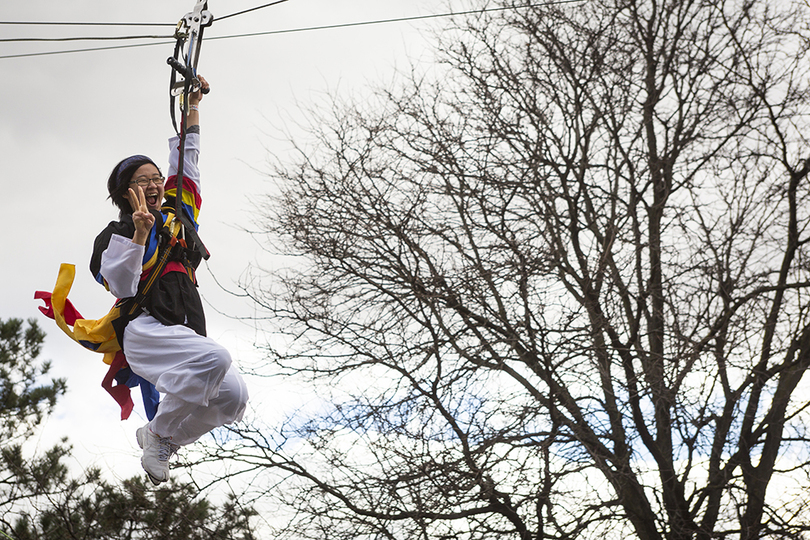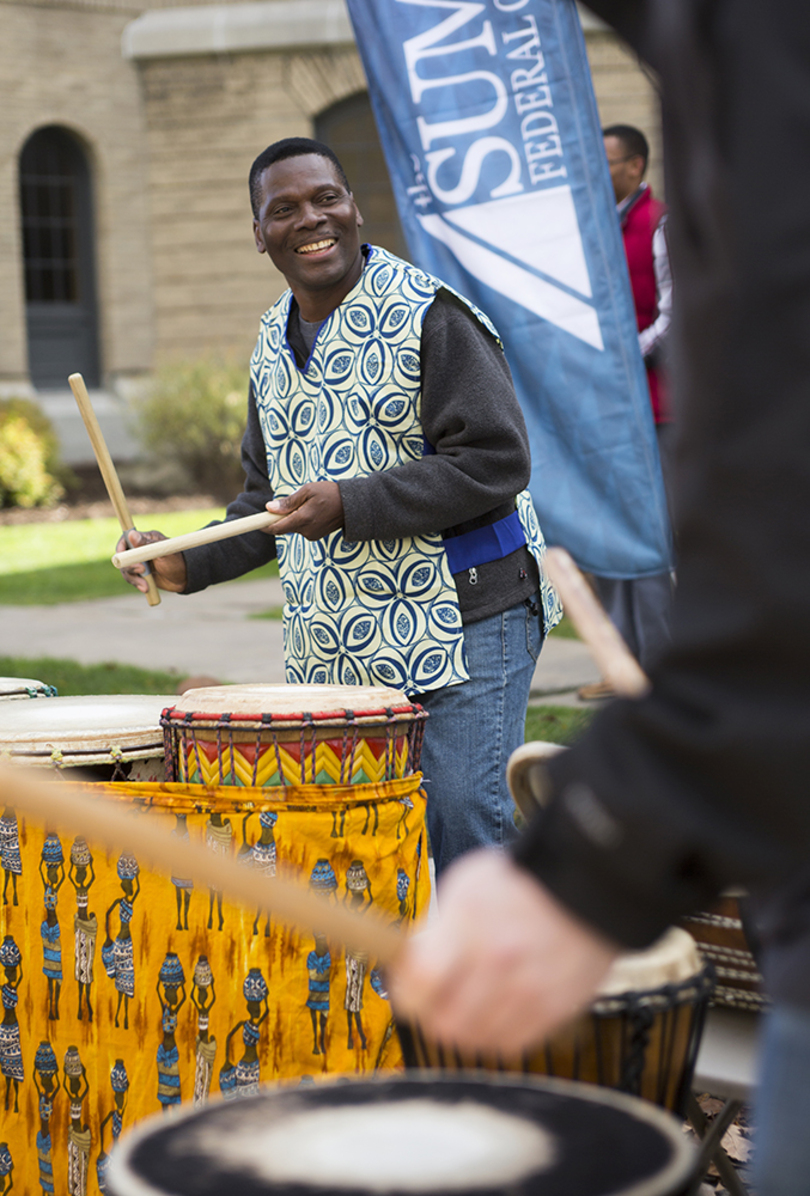Connecting the dots: ‘Zip Fest’ kicks off Connective Corridor Phase Two
Forman Park was filled with provocative smells from local food trucks, dancing groups following the rhythm of drums and happy screams from children of all ages riding a portable zip line — all to kick off construction of an improved bus route.
Connective Corridor officials hosted the “Zip Fest” Street Fair and Food Truck Rodeo on Sunday from 11 a.m.–3 p.m. in Forman Park along East Genesee Street to draw attention to the start of construction on Phase Two of the Connective Corridor, which will start on Monday.
The three-part Connective Corridor project was outlined by Chancellor Nancy Cantor in 2005 with the vision of connecting the university to the city. It is set to cost $42.5 million. Phase Two will better connect the streetscape, green bike lanes and cultural district of the university area with downtown Syracuse. It is projected to be finished by the end of 2015.
Attendees were encouraged to access the rodeo event by taking the Connective Corridor, then getting off at nearby stops outside the Crowne Plaza Hotel and Syracuse Stage.
The featured entertainment was a 200-footlong mobile zip line that ran about half a block down the street. It was free to ride and drew long lines of participants throughout the day. Event organizers said they believed it was a good way to visualize the Connective Corridor’s purpose. It would “connect and activate a vibrant street scene and public spaces for community members and visitors to enjoy the urban experience,” according to an event press release.
There was also live entertainment throughout the day with performances from Syracuse University dance groups and a local drum circle group called Wacheva Cultural Arts. At one point, the drummer called out to the bundled-up spectators to “come dance” to warm up from the cold.
The event was meant to bring students and their families together with people in the Syracuse community, as it was publicized as an event for Family Weekend. However, the festival was mostly filled with community members, besides those who performed in student groups as part of the event’s entertainment.
Still, it was a success, said Pat Orr, owner of PB&J’s Lunchbox. She worked in one of the half-dozen food trucks present at the food festival. Orr said food truck festivals are a relatively new thing to Syracuse, but are a growing trend across the country.
“The city is trying to have more events like this,” Orr said. “It’s good because it draws people out and it helps the small-business people. We’re just small-business people trying to make a living, you know? We’re not anybody that’s going to be rich.”
Orr attributed the low turnout of people to the cold weather. But, she said, she sold a lot of “consistently delicious” chili.
She said she was proud that the food trucks were asked to help publicize the Connective Corridor because she highly supports it. Orr said the bus route is a great way to connect the university with the surrounding community because both feed off of each other to survive economically.
“The city supports the university. You go to those football games and those basketball games and there’s students there, but there’s people that drive from Albany, Utica, Rochester, Buffalo, just to come to SU basketball,” Orr said.
Fellow food truck driver Roy Osborne of Ossie’s Streatery was also happy to participate in the festival. While Orr has been a part of PB&J’s Lunchbox for almost three years, this was only Osborne’s second food truck festival, although he has extensive restaurant experience.
He said he prefers the food cart business to restaurants, though, because the amount of money involved in starting up a food cart is significantly less than opening a restaurant. He said is thankful that the Syracuse community is becoming more receptive and welcoming to food cart festivals.
Osborne supports the Connective Corridor because it allows him to connect his love of Orange athletics with his business.
“Anything that connects the community is a positive thing, and it should happen more often,” he said, adding that the event was very well organized.
Osborne’s specialty food truck sells handmade donuts — “Donuts are the No. 1 bakery item in the country” — and said there was a long line outside of his cart throughout the day. The event was successful based on food sales, as well as the number of people at the fair. They even ran out of hot apple cider, he said.
Said Osborne: “It was a very positive experience and I’m happy to be a part of it.”
Published on November 4, 2013 at 12:18 am
Contact Kristin: klross01@syr.edu | @kriskross22








